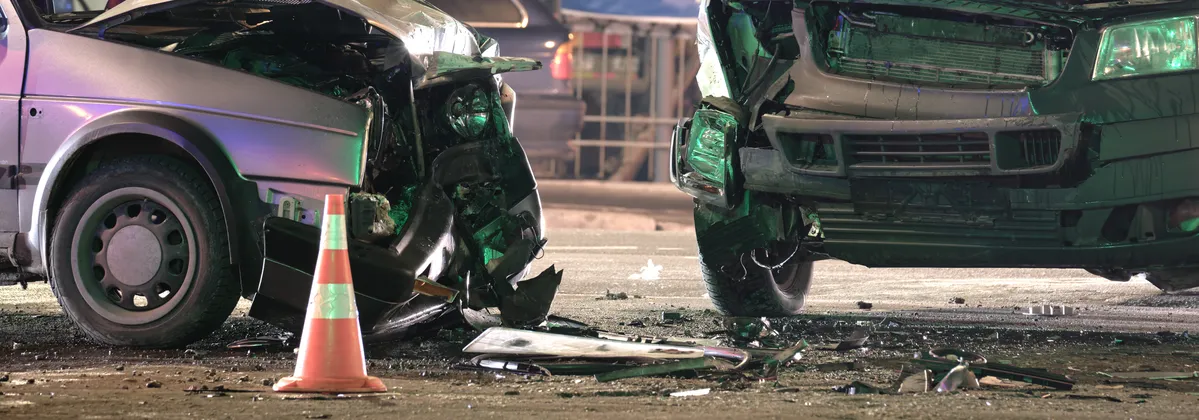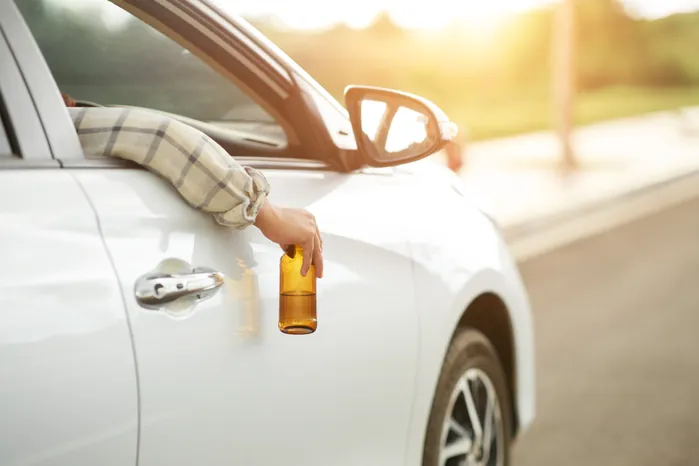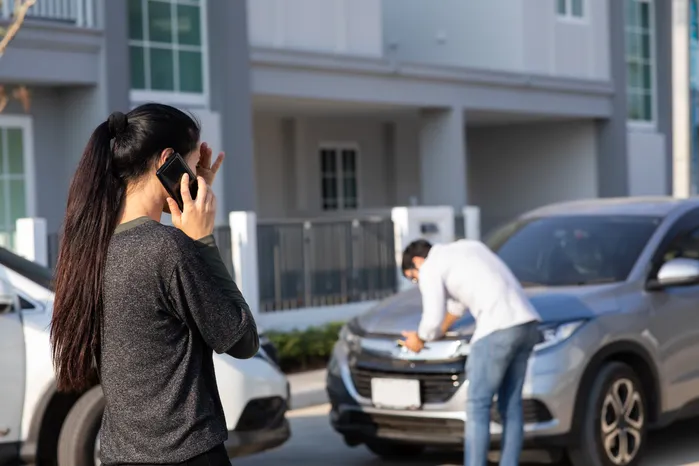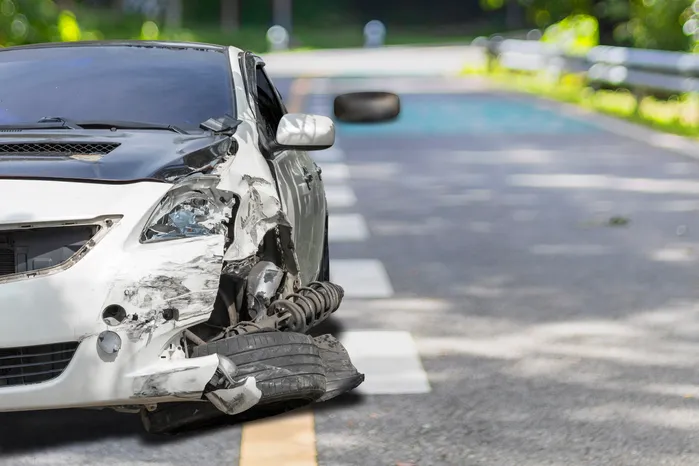7 min read time
Table of Contents

What is a Total Loss When the Vehicle Still Runs
A vehicle can be declared a total loss when repair costs exceed its pre-accident value, even if it's still drivable.
Understanding this fact can help those involved in car accidents that totaled their vehicle better navigate insurance claims, legal title changes, and the steps owners must take after their vehicle is declared a total loss.
What Is Considered a Total Loss for a Drivable Vehicle
A vehicle is deemed a total loss when the estimated repairs exceed its pre-accident value, even if it can still be driven. Insurance companies compare the repair estimate to the actual cash value and set a percentage threshold, based on state laws and other factors.
Key indicators of a totaled vehicle include:
- The repair estimate is greater than the vehicle's value
- Salvage value deducted
- Diminished resale worth
How Insurance Companies Calculate Actual Cash Value
When an insurer declares a vehicle a total loss, it first estimates the car's actual cash value (ACV). The ACV is the vehicle's pre-accident market worth, not a new replacement cost.
Adjusters use depreciation, mileage, condition, and recent maintenance to calculate a vehicle's ACV. They compare the ACV to repair estimates, and if the cost to repair the vehicle exceeds the ACV, the car is considered totaled even if it remains drivable.
Assessing the Safety and Viability of a Totaled Car That's Still Drivable
Evaluating whether a vehicle that has survived a car crash can still be safely operated involves examining structural integrity, mechanical function, and whether it meets safety standards.
Such assessments can help owners decide if repair costs justify keeping the car or if the scrap yard will be the vehicle's final resting place.
Checking for Hidden Damage and Structural Integrity
Inspect the vehicle's frame for frame damage, such as bends or cracks that compromise its structural integrity and safety. Also, check welds and mounting points for signs of weakness that may affect safety standards.
Finally, use a laser level or straightedge to verify alignment before driving, ensuring the vehicle can be legally driven without any safety implications.
However, it's always recommended to take the vehicle to a professional mechanic to ensure full vehicle function.
How to Determine a Totaled Vehicle's Repair Costs
Determining the repair estimates of your vehicle on your own is highly recommended, as the insurance company may make many errors.
Start by gathering multiple repair quotes, noting parts, labor, warranty details, and potential costs. Cross-check each quote against the vehicle's actual cash value (ACV).
If repair costs are close to or exceed the ACV offer, consider selling or salvaging the vehicle instead, as it may be deemed totaled and issued a salvage title.
A salvage vehicle may receive a lower insurance payout, and it should be evaluated whether you can legally drive it after repairs, or if it must be sent to a salvage yard. If the vehicle is deemed totaled, file a totaled vehicle claim for payout.
Navigating the Insurance Settlement Process for Totaled Vehicles
Understanding how insurance companies calculate payouts for totaled cars can help you secure a fair settlement and avoid common problems people often face.
By gathering thorough documentation and approaching the adjuster with confidence during the claims process, you can protect your financial interests.
Ensuring a Settlement Offer Is Fair
A car accident claim settlement offer is the insurer's estimate of your car's value before the car crash, minus any deductible. Accepting it means you settle the claim without further negotiation, so it's crucial that you ensure it's fair and adequately compensates you for your losses.
Key parts to check before accepting a settlement are:
- Fair market value
- Deductible amount
- Insurance policy coverage
- Salvage title impact
- Totaled vehicle status
To ensure that a settlement offer is fair, it's best to review it with an experienced attorney.
How to Negotiate a Higher Insurance Claim Payout
If you think the insurance company undervalued your claim, you can increase your next settlement offers by gathering detailed maintenance logs, recent repair receipts, and high-resolution photos of your vehicle's condition before the crash, including evidence of property damage.
Present this evidence to the adjuster, request a new ACV calculation, and negotiate calmly until the offer reflects your car's true market value.
If the insurance adjuster still doesn't offer you a fair settlement, it's recommended to schedule a free consultation with an experienced car accident attorney from the Rodney Okano Car Accident Lawyer Law Firm, who can handle negotiations on your behalf.
How Liability Coverage Limits Can Affect Your Settlment Payout
When the insurance company declares your vehicle as a total loss, the at-fault party's property-damage liability cap becomes crucial to how much compensation you are eligible to receive.
If the at-fault party's liability policy caps out at $25,000 but your car's ACV is $35,000, the insurer may undervalue the vehicle, leaving the remaining $10,000 to be covered by your own comprehensive coverage or underinsured motorist policy.
When the at-fault party's coverage can not fully cover your damages, take the following steps:
- Verify the at-fault policy limits
- File a claim under your UIM coverage and consult with a car accident attorney
- Consider GAP insurance if you owe more than the payout
These steps are meant to protect you from out-of-pocket loss, lost wages, and future liability.
Deciding Whether to Keep, Repair, or Sell a Totaled Vehicle
When a car is declared totaled yet still drivable, owners face a complex decision of whether to keep, repair, or sell the totaled car. Understanding the financial, legal, and emotional factors in all the options helps clarify the best option to take.
Option 1: Repairing the Car Independently vs. Using a Repair Shop
Independent repairs allow owners to control costs and select parts from a qualified mechanic.
While seeking repairs from approved shops guarantees quality, warranties, and that the vehicle meets insurance and state inspection standards.
Choosing depends on budget, expertise, future resale value, and future insurance coverage.
Option 2: Selling the Totaled Car for Parts or Scrap
Selling the totaled car for parts or scrap provides quick cash with minimal effort. Salvage yards will handle the title transfer and pay a set scrap value, and issue a salvage title.
Selling the parts individually can often fetch more than a flat scrap price, but the financial return depends on the vehicle's condition, demand for specific components, and potential buyers.
Adjust the insurance settlement by subtracting the estimated scrap value before surrendering the title, ensuring all paperwork is completed, providing evidence of the vehicle's condition, and ensuring the insurer is not undervalued.
Understanding Long-Term Maintenance Costs of a Totaled Car
When deciding whether to keep, repair, or sell a vehicle, evaluating long-term maintenance costs is essential. Factors, including age, mileage, parts availability, repair history, warranty status, and property damage, should all be considered.
To estimate future maintenance expenses, obtain detailed repair estimates, research part prices, consider local labor rates, and factor in depreciation. Compare these figures to the vehicle's resale value and payout based on the vehicle's market value to make an informed choice.
If you still have a car loan, consider the loan balance relative to the payout. A vehicle that is properly repaired can maintain value, but if repairs exceed the payout, you may need to address a negative equity situation.
Managing Outstanding Loans and GAP Coverage
When a vehicle is declared a total loss after a car accident, the balance between the loan amount and the vehicle's actual cash value can create financial uncertainty.
Understanding how gap insurance bridges that gap (get it) is essential for protecting your finances from insurance issues.
Handling Loan Balances That Exceed the Totaled Car's Value
When the insurance company declares your vehicle as a total loss but the insurance payout falls short of the loan balance, you must cover the remaining debt yourself.
When facing the possibility of having to pay off a vehicle loan from your personal finances, you should:
- Verify the exact shortfall
- Negotiate a payment plan with the lender
- Explore a short-term loan to cover the remaining loan
Applying GAP Insurance to Cover Loan Gaps
GAP insurance bridges the gap between the insurance payout and the remaining loan balance when a vehicle is totaled.
If you owe more than the car's actual cash value, GAP coverage covers the shortfall, preventing you from carrying a negative equity balance.
Securing a Salvage Title and Understanding Its Legal Implications
After the insurance company declares a car totaled, often following a car accident or structural damage caused by natural disasters, the owner can choose to keep the car and pursue a salvage title.
Understanding the steps to secure that title and the future impact on insurance and resale is essential.
Obtaining a Salvage Title and Converting It to a Rebuilt Title
When an insurer declares a vehicle a total loss, it receives a salvage title, which is meant for salvage vehicles.
To get a salvage title converted to a rebuilt title, owners must complete approved repairs, provide evidence that all safety issues were handled, and submit receipts and documents to a state inspection station.
After passing the safety test, the DMV issues a rebuilt title, restoring road-legal status on public roads while documenting the vehicle's repaired condition and that the repairs meet state inspection standards.
Obtain the Compensation You're Entitled To
Contact Us Today
Rodney Okano Car Accident Lawyer is a Las Vegas personal injury law firm with over 20 years of experience helping clients obtain maximum compensation following injuries from accidents such as car crashes, worksite injuries, and slips and falls. Over those years, The Rodney Okano Car Accident Lawyer Law Firm has become an experienced law firm that can ensure exceptional results for any of its clients.






